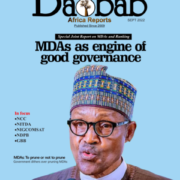By Joy Akunwa Nwajari
Introduction: From Rivalry to Opportunity
For decades, Nigeria has carried the heavy burden of ethnic rivalry. From elections to violent clashes, tribal differences are often exploited as tools of division. Yet, what if these same differences—rather than weakening us—could become the very foundation of peace and prosperity?
This is the vision behind the Cross-Ethnic Risk Portfolio, a simple but powerful idea: just as investors diversify assets to reduce risk, Nigerians can “diversify” their families, businesses, and investments across ethnic lines. When people share mutual stakes, they protect one another.
The Cross-Ethnic Risk Portfolio Explained
At its core, this approach reframes tribalism as an economic strategy rather than a mere moral appeal.
- Diversify to Protect: Families, farms, or companies that cut across ethnic lines spread risk and build resilience.
- Shared Interest = Shared Security: People are less likely to fight when they have something to lose together.
- Peace as Dividend: Stability becomes a return on investment, not just a dream. In short, this is peace not as charity, but as common sense business logic
Real-Life Examples of Cross-Ethnic Portfolios
- Kaduna Transport Partners: Two childhood friends—one Igbo, one Hausa—co-own a bus company. In times of unrest, their connections across regions help keep their routes safe.
- Marriage that Prevented Violence: In Plateau State, a Fulani man married a Berom woman. When farmer-herder clashes threatened, both families stepped in. Their shared grandchildren gave them every reason to negotiate peace.
- The Lagos Housing Block: Yoruba, Igbo, and Niger Delta tenants co-invested in apartments. When unrest erupted, they jointly paid for security, ensuring everyone’s property was safe. These are not theories—they are living proof that Nigerians already practice cross-ethnic collaboration on a small scale. The challenge is to expand it deliberately and nationwide.
Government and Grassroots Roles
For this vision to succeed, responsibility must be shared. It cannot rest on government alone.
Grassroots & Private Sector:
- Chambers of commerce can support mixed-ethnic business clusters.
- Universities can host competitions where only cross-ethnic teams qualify.
- Religious institutions can encourage inter-ethnic farmer and trader cooperatives.
Government Incentives:
- Tax breaks for diverse companies.
- Matching grants for diaspora investments.
- Community rewards (roads, clinics, markets) for peacekeeping towns.
By blending bottom-up innovation with top-down incentives, the model becomes stronger and more sustainable.
Overcoming Resistance
Critics may say this idea goes against tradition or threatens identity. But it doesn’t force anyone—it simply rewards diversity.
The truth is, Nigeria is already interconnected. Our markets, schools, cities, and marriages prove it daily. The Cross-Ethnic Risk Portfolio only formalizes what we already do and makes it more rewarding.
A Clear Call to Action
To move from concept to reality:
- Start Small: Pilot projects in Lagos, Abuja, and Port Harcourt.
- Empower Communities: Involve women, farmers, artisans, and youth—not just elites.
- Blend Policy and Practice: Government and citizens must share responsibility.
- Tell the Stories: Nollywood and music can highlight real-life cases where diversity prevented conflict.
Conclusion: When Peace Pays, Nigeria Wins
Nigeria doesn’t need to erase its differences to prosper. It only needs to reframe them. The Cross-Ethnic Risk Portfolio turns tribalism from a weapon into a bridge, and diversity from a slogan into stability. If we scale this vision, more Nigerians will have a stake in peace than in conflict.
And when peace pays, Nigeria wins.
Nwajari is an NYSC Corp member, Institute for Peace and Conflict Resolution (IPCR), Abuja




















